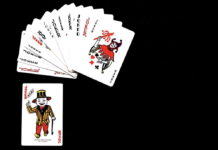A politician in Australia has proposed legislation that would require an R18+ classification for video games that include any sort of gambling mechanics.
Federal politician Andrew Wilkie, an independent, put forth a bill on November 28, 2022, that, if enacted, would severely limit the usage of loot boxes in children-targeted video games, following the lead of governments in nations like Belgium and the Netherlands. Wilkie argues that loot box mechanics, in which users spend real money to get spontaneous in-game objects that have “significant value for players,” feed upon the same instincts that gambling does and can operate as a gateway to get young people addicted to gambling. The Australian lawmaker proposes that games featuring loot boxes or similar mechanisms should be restricted to people over the age of 18 (the legal gambling age in Australia) and should carry a warning label explaining why a game is rated a certain way.
Companies in Australia will be prohibited from marketing loot boxes to children under the Classification Amendment (Loot Box) Bill, which is scheduled to be brought to Parliament in August. The games will be labelled as “adults only” (R18+) to give “parents a warning” and will also come with cautionary details, similar to games that caution players that they contain harsh language, strong violence, etc. Wilkie has stated that the “risk-taking for possible reward” inherent in loot boxes compels young gamers to “keep spending money,” evoking the same feelings and behaviours seen in “traditional gambling activities.”
In Australia, gambling has always been a popular kind of entertainment, especially in the form of sports betting and horse racing. Every major gambling operation in Australia must obtain a license from one of the country’s states or territories to operate legally, and this applies to activities such as lotteries, sports betting, online slots, and land-based casinos. Australia’s Interactive Gambling Act (IGA) from 2001 governs the legality and operation of online casinos and poker rooms; additionally, Australian bookmakers are also required to have a corporate bookmaker license or an on-course bookmaker license. Furthermore, the legal promotion of gambling services is subject to stringent federal, state, and territorial regulations. In an effort to reduce children’s exposure to gambling advertisements, the federal government has recently established new guidelines that prevent such ads during broadcasts of live sports. With the new proposed Loot Box Bill, lawmakers are making another attempt to keep youngsters from being exposed to gambling-like activities in video games.
Loot box proponents and opponents have argued back and forth for years over whether or not it constitutes gambling. Game developers and trade groups have claimed that it does not, from a legal standpoint, while other experts have said it does.
Perhaps the best example of this divergence of opinion can be found in the United Kingdom, where the director of the National Health Service’s mental health division stated in 2020 that loot boxes teach children to gamble, and the House of Lords subsequently called for loot boxes to be categorized as a form of gambling. However, the Gambling Commission, the body that ultimately approves such decisions, has repeatedly stated that loot boxes do not constitute gambling. The fact that objects obtained from loot boxes do not have any economic value is the basis for this position, which has also been taken in the past by other organizations such as game publishers, rating boards, the Entertainment Software Association, and other gambling regulators.
Although the majority of nations agree that the stakes in gambling must be monetary or otherwise have some sort of tangible value in order for it to be considered gambling, this view is far from universal, as evident from the recent developments in Australia.
In a statement on his website, Wilkie declared firmly that loot boxes are “gambling by any definition” and that Australian children and teenagers “routinely” encounter them. However, unlike legislation proposed in Belgium and the Netherlands, Wilkie’s measure does not aim to abolish loot boxes per se. In its place, it would mandate that any game with loot boxes be labelled as R18+. Wilkie noted that this method, as opposed to a complete prohibition, strikes a balance between individual rights and public safety.
The proposed law would allow loot boxes to remain freely available to anybody over the age of 18 since the country’s Classification Board continues to maintain authority over the “classification of the material.”





Loot boxes are abhorent, otoh if you make loot box games R18+ then what about e.g. kinder surprise?